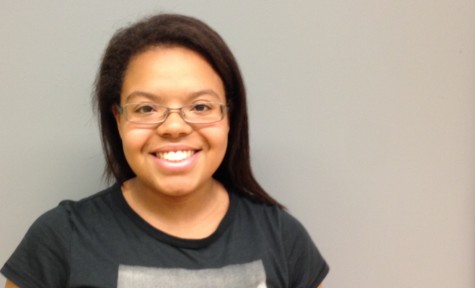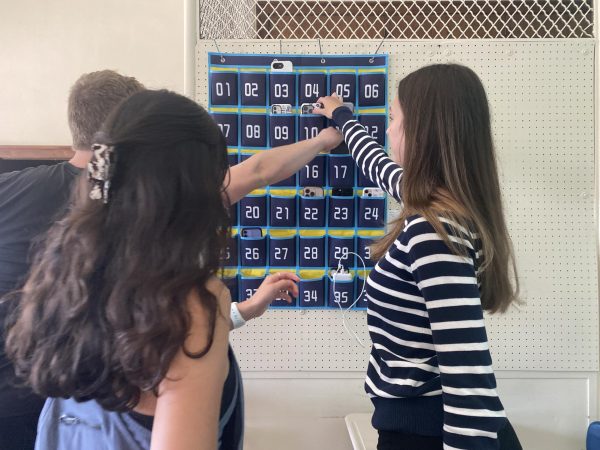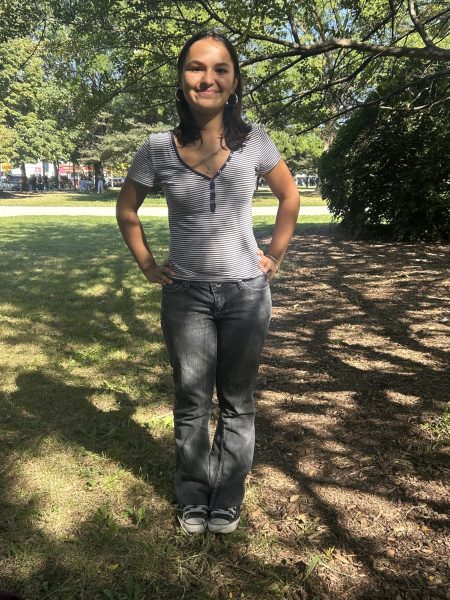Lane counselors strive to meet with all students
Monday through Friday makes hectic work for 10 Lane counselors overwhelmed with the responsibilities that pile on with their 4,000-plus students. Although this time of year brings college applications and a new school year for students, it also brings on great responsibility for 10 counselors to handle.
This new school year, however, the counseling department is taking steps to ensure that students know who their counselor is as well as setting time aside to meet them.
On Sept. 18, teachers received a flyer in their mailbox titled “Meet Your Counselor.” During that Friday’s lunch periods, the 10 counselors were in the College and Career Center (CCC), giving students who have not met directly with their counselor that opportunity as well as allowing students of all grade levels to ask questions.
In addition to this event, counselors wanted to ensure that if a student was unable to see their counselor in their allotted lunch time or before or after school, that the counselor would be able to contact students seeking guidance.
“We are now being more calculated in tracking who comes through the counseling office in the waiting room. We have a sign-in, so that way we can see who we met and who waited and wasn’t able to see us,” Ms. Bantz said.
Compared to other schools such as Whitney Young (seven to eight counselors), Walter Payton (five counselors), Jones (five counselors), and Northside (four counselors), the amount of counselors are almost comparable to Lane even with nearly 2,500 students more than other selective enrollment schools.
According to the National Association for College Admission Counseling (NACAC), more than 50 percent of high schools have approximately 250 students per counselor.
The American School Counselor Association recommends that schools have ratio of 250 students for each counselor, though according to their website, Illinois has an average of 763 students per counselor — over 500 more than the recommended average — showing that some schools are similarly constrained with a large amount of students and fewer counselors to handle the load.
“We all [counsel] approximately the same amount of students [as each other] which is higher than the national standard. We understand that because of the state of things, the way CPS funds as far as budgets go that it kind of is what it is and we are doing the best we can do,” Mr. Hoof said.
As this season is geared towards the seniors with college information, the counselors met with their senior divisions, hoping to see the progress their students have made as well as check in with how they doing.
“We set time aside in the fall to meet with our seniors one on one because that is so important to know where they are in the college application process,” Bantz said.
Counselors reported the importance of their department within the fall for seniors for college applications. Then is the transition to informing juniors about Naviance and beginning their college search. This often leaves little time for freshmen and sophomores.
“Around March we [set time aside] with our freshmen which we have always been trying to do to make sure our freshmen are adjusting to school, but we can’t do it in the fall because we are meeting with our seniors,” Bantz said.
Over the summer, some students still find themselves in need of their counselor when it comes to matters of college and the following year. The response varies, some receiving a message in reply signaling their counselor’s unavailability during the summer, an empty inbox, or a thankful response.
“[Mr. Hoof] helped me over the summer. I needed my GPA and I emailed him, and I needed my Naviance account registered [so] he sent me my [information], but he was there when I needed him,” Julia Troszczynska, Div. 676, said.
It remains a struggle for the counselors to manage the difficulty of many students but along with the majority of Illinois high schools, they do their best to make themselves accessible to the needs of their students.
“It is not easy, but I think all of us in the department do what we can to make it work,” Hoof said. “You just do the best that you can, try to be as available as possible and you have to be quick on your feet in finding resolutions to problems. Really you just make it happen.”
Your donations directly fund the Lane Tech student journalism program—covering essential costs like website hosting and technology not supported by our school or district. Your generosity empowers our student reporters to investigate, write, and publish impactful stories that matter to our school community.
This website is more than a publishing platform—it's an archive, a research tool, and a source of truth. Every dollar helps us preserve and grow this resource so future students can learn from and build on the work being done today.
Thank you for supporting the next generation of journalists at Lane Tech College Prep!




